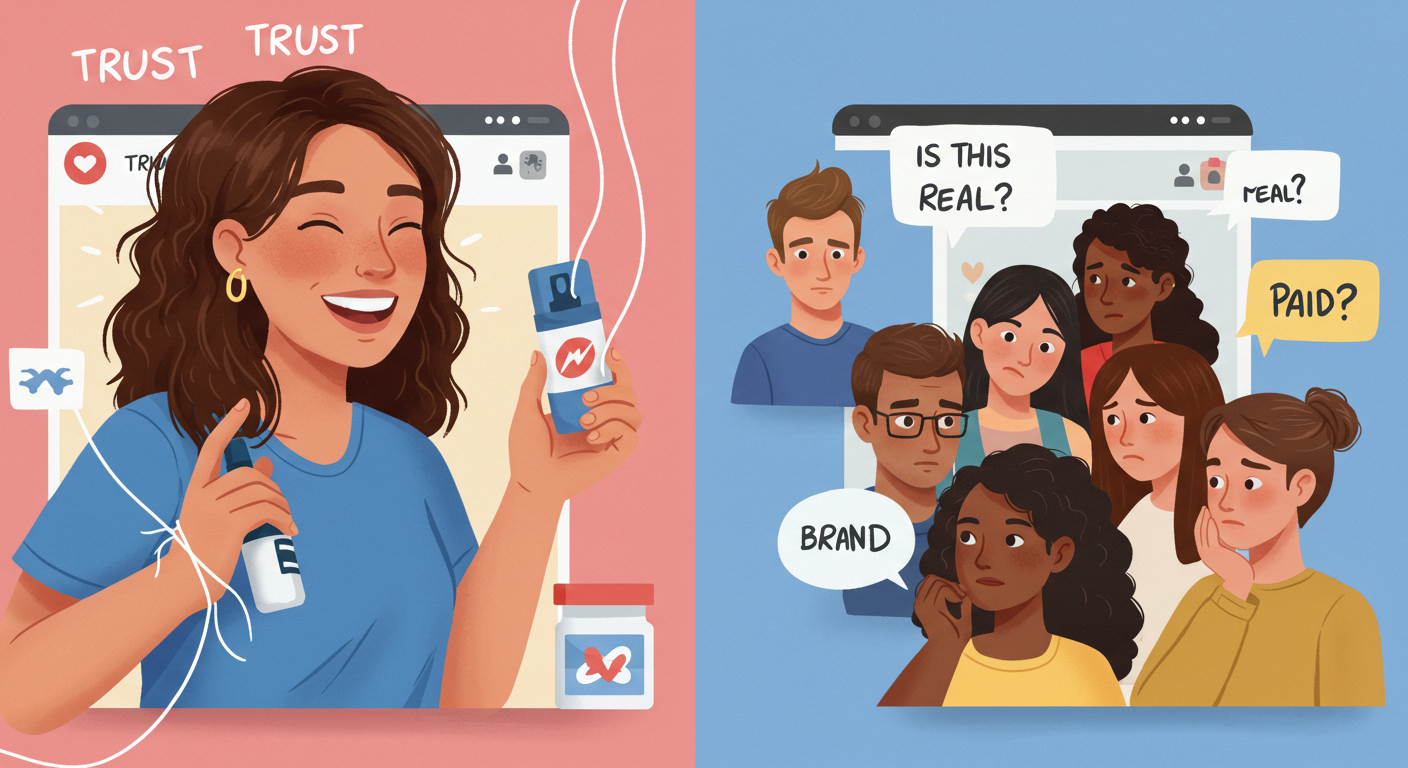A new report from the National Advertising Division of BBB National Programs, a non-profit self-regulation body in the US, states that consumers are growing more wary of creator-driven marketing than traditional brand advertising.
The survey emerges amid growing criticism of influencers who fail to disclose paid brand partnerships.
Despite the rising doubt, the creator marketing industry is expanding, with projections pointing to strong revenue growth in the years ahead, as well as consumers still actively consuming content made by influencers.
According to the report, five consumer class action lawsuits have been filed in the past six months, with plaintiffs claiming they were misled into buying products based on influencer endorsements, only to discover later that the promotions were paid. The lawsuits contend that had consumers known the posts were advertisements, they would have chosen not to make the purchase.
The report also shows that while over half of consumers have made purchases based on influencer endorsements, many still harbour distrust. Specifically, 26% don’t trust influencer marketing, more than double the 11% who distrust traditional advertising, and 33% seek out content from creators about a product or topic.
Eighty-seven per cent of respondents trust traditional advertising, while 74% say they trust influencer advertising. Though the relationship between trust and media is nuanced, conventional advertising has long served as a tool for building consumer confidence, often seen as a signal that a company is established and produces quality products. Influencer marketing operates a bit differently. Interestingly, 70% of those surveyed say that a brand partnership doesn’t necessarily make a creator less trustworthy.
However, trust issues are largely tied to transparency; 64% of consumers distrust influencers who don’t disclose brand relationships, and 70% feel negatively when they discover undisclosed payments or gifts.
Jennifer Santos, an advertising law attorney at NAD, affirms that the survey reveals that although spending on influencer marketing continues to rise, consumer scepticism persists.
“While the influencer market is thriving, is consumer trust in influencers suffering?” said Jennifer.
According to WPP Media, Creator marketing is expanding at a rate of 20% annually and is projected to reach $184.9 billion globally by 2025. It is experiencing rapid growth,
“There’s so much talk about influencers and content creators being authentic, I think this shows that authenticity should really equal transparency. We were seeing more and more of these cases and learning that maybe there’s more influencers out there that are not making these disclosures or relationships with a brand very clear to consumers,” Jennifer added.
The National Advertising Division’s report draws from a survey of 3,700 consumers between the ages of 18-65 years, conducted in collaboration with The Benchmark Company.
The report was commissioned in response to a rise in cases involving influencers failing to disclose brand partnerships—an infraction of the FTC’s guidelines on endorsements and testimonials.
ALSO WATCH: MARKETING EDGE ONTV





Comment
No comments found.